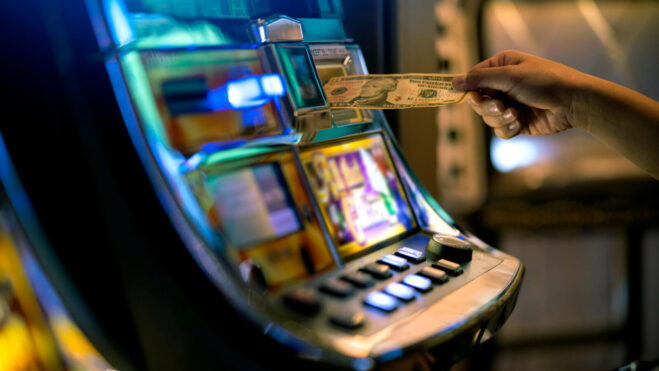Senator Behind Bill To Ban Credit Cards For Online Gambling Feels Obligation ‘To Try To Deter Addiction’
“Gambling has become very easy and convenient, but it’s supposed to be entertainment,” Pennsylvania Sen. Wayne Fontana said.
3 min

When Pennsylvania Sen. Wayne Fontana and his legislative colleagues voted in 2017 to expand the state’s legalized gambling — most notably into an array of online options — no one spoke about the potential for massive credit card debt among those addicted to the easily accessible play.
Seven years later, Fontana has started that discussion.
The longtime Democratic lawmaker from suburban Pittsburgh last month introduced Senate Bill 1159, which would ban use of credit cards to fund accounts used for online casinos, online sports betting, fantasy sports contests, and the state’s iLottery.
Fontana has no intent to reduce the gambling options themselves, including the ability to use debit cards, PayPal, and other means of funding them, but he told Casino Reports he’s concerned about people getting in over their heads with money they don’t have.
“We have an obligation to try to limit how much gambling someone does that really can’t afford it and to try to deter addiction, in any way we can,” he said. “We can do something to be helpful and send a message that, ‘Listen, be careful, because if you like to chase, that’s what gets you in trouble.’”
Pennsylvania wouldn’t be the first
Fontana noted that Iowa, Tennessee, and Massachusetts already ban credit card funding of online sports betting accounts. The United Kingdom and Australia are among several overseas jurisdictions with similar restrictions.
Those limits were all adopted in the years following the Pennsylvania Legislature’s 2017 vote as an early adopter of online gambling options. It is one of the few states to allow not only online sports betting but iCasinos and iLottery play.
“Back then, I’m not sure anybody banned credit cards,” Fontana said, recalling the initial debate in Harrisburg. “You pattern yourself after what other states are doing, and then issues like this come up. We passed the gambling [expansion] and didn’t realize the loopholes.”
He acknowledges the great revenue boost that online gambling has represented not just for operators but the state, as Pennsylvania taxes legalized gambling at higher rates than most counterparts.
Of $5.7 billion in total gambling revenue earned by legal commercial operators in Pennsylvania in 2023, $1.7 billion was from online casino play. Of $458.6 million in sports betting revenue, more than 90% came by phone or computer. Another $20.1 million was earned by online fantasy sports operators.
In addition, $82.3 million of Pennsylvania Lottery proceeds in the last fiscal year was generated from online play, which was also legalized as part of the omnibus 2017 expansion bill.
The lure can be powerful
While Fontana sees a benefit to the state from all that, he this year took more notice of media attention and research reports given to gambling addiction, particularly to younger participants attracted in excess to the convenient online options.
One of his constituents, a psychiatrist in a largely affluent Pittsburgh suburb, was profiled in the Wall Street Journal in February after accumulating hundreds of thousands of dollars in debt playing online casino games with multiple operators.
Fontana noted even average Pennsylvanians have several thousand dollars of credit card debt, regardless of gambling.
“Gambling has become very easy and convenient, but it’s supposed to be entertainment,” the senator said. “Any dollars you set aside for entertainment or discretionary spending in a budget, you need to handle your money responsibly. We all know, whether it’s from gambling or anything, credit cards can get you in trouble.”
Fontana said he has had no discussions with either the commercial gaming operators or credit card companies about SB1159. He expects that to be likely if the bill, introduced only recently on April 22, begins receiving consideration in the legislature.
Numbers not on Fontana’s side
The senator acknowledges, however, that prospects for any vote are iffy, at best. He is a Democrat introducing a bill in a Republican-controlled chamber. Of six co-sponsors of the legislation, only one is in the majority.
The bill has been referred to the Senate Community, Economic, and Recreational Development Committee, of which Fontana is a member. He said that when he spoke to the committee’s chairman, Sen. Chris Gebhard, about the measure, the Republican was unfamiliar with the credit card issue.
Fontana had his staff compile and send to Gebhard a group of articles covering the topic, but he is uncertain if that will make any difference in advancing the bill.
“If it is put up for a vote, it’s hard to imagine someone voting no,” he said, on what he views as a basic consumer protection measure.
The Pennsylvania Legislature will be preoccupied with budget-related measures through June 30 and then returns in the fall to complete the 2023-’24 legislative session.
When it comes to gambling-related issues, Fontana said he knows the first priority in Harrisburg won’t be his bill but what to do about potential legalization and taxation of so-called “skill games,” the unregulated devices similar to slot machines that have proliferated in bars and convenience stores throughout the state. He said he is among a group of legislators negotiating over how to proceed on that topic.
He hopes, however, that his sponsorship of the credit card bill will be the start of a discussion that eventually leads to action on one potentially dangerous aspect of online gambling for a small portion of the population.
“It’s definitely brought in a lot of money, but as an addictive kind of thing that can hurt people, we need to do as much controlling as possible,” Fontana stressed. “We need some oversight and control, and this is a control that was overlooked back in 2017.”




